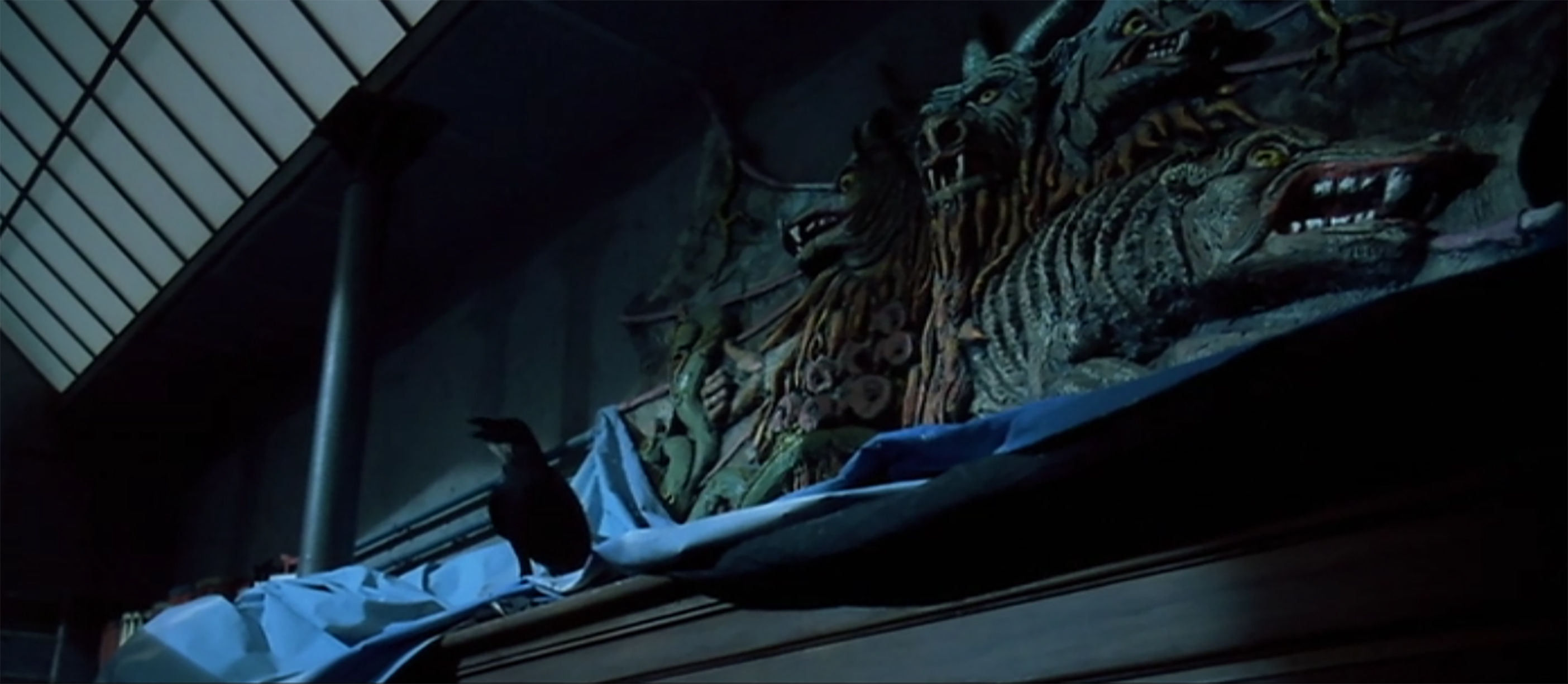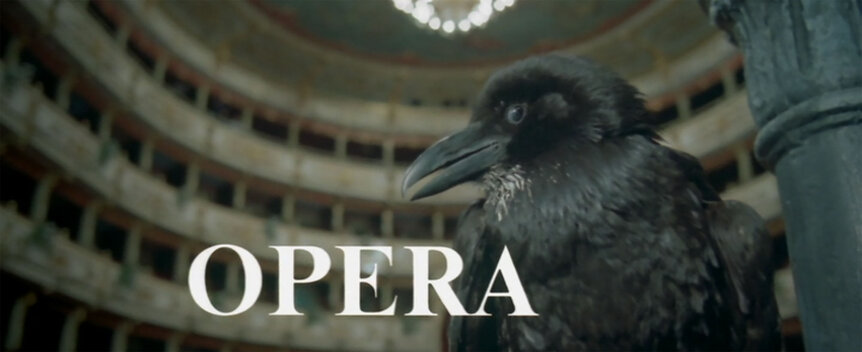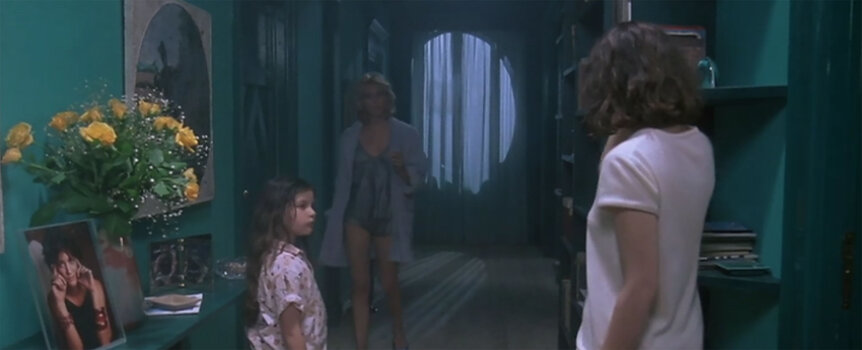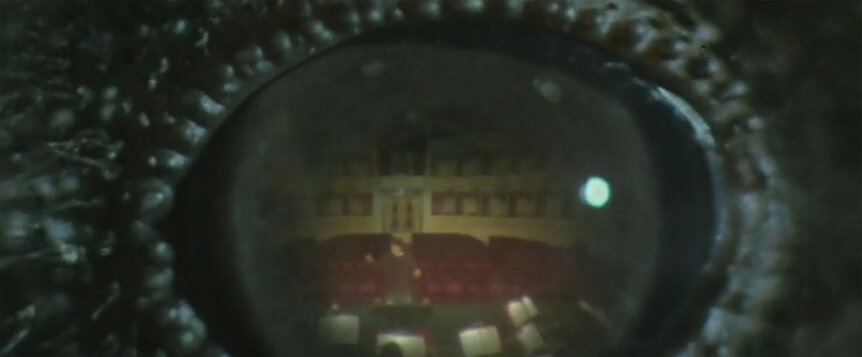Create a free profile to get unlimited access to exclusive videos, sweepstakes, and more!
If you love Suspiria, check out Dario Argento's bizarre sister film Opera

Opera opens with a reflection in a raven's eye, looking down from high above on the rehearsal. The star of the show falters and stops singing, crying that the birds in the opera house are trying to ruin her performance. She tries again as the ravens continue to shriek and caw alongside the bombastic soundtrack, and again she loses her footing.
Having established himself as an undisputed master of Italian horror years before with films like Suspiria and Inferno, Opera might be the not-so-hidden gem of Dario Argento's output. Self-aware commentary on the nature of performance and the stress theatrical actors are under permeate the plot. Seldom given the attention of Argento's other, more straightforward films, Opera manages to merge familiar thematic tendencies with the style and terror that made him one of horror's best-known directors.
Terror at the Opera
Even as Giallo plots go, Opera is convoluted due to its intentional surrealism and themes of memory suppression. Briefly, a director is attempting an avant-garde take on Giuseppe Verdi's opera, Macbeth. Theatre legend has established Macbeth as a particularly unlucky production, and the unease seeps quickly into the minds of the actors. A particularly tempestuous opera star is in a car accident, and her role goes to the novice, Betty, who has never performed before a live audience.
In typical Giallo fashion, this descends into a bizarre murder mystery. A masked killer attempts to kill actors by cutting lights that nearly crush people on the stage. The unrevealed killer binds Betty and forces her to watch his murders, taping needles beneath her eyes that will slice her corneas to bits if she so much as blinks. Afterward, he releases her and allows her to go on her way. Betty stumbles through this horror, uncertain of how to even ask for help as her supporting cast dies one by one. The bombastic tones of operatic singing, orchestral scores, and the shrieking of ravens serve as a brilliant soundscape for the horror as it unfolds.
Of Argento's many characters, Betty stands out for the unique nature of her arc. In the beginning, we meet a novice who is suddenly elevated to the status of celebrity well before she is ready for it. She is the victim of a violent and evil mother, whose sins she has forced herself to forget but which continue to haunt her throughout her life. She is the object of many people's lust and affection, but she herself is emotionally distanced from everything that happens to her. When someone asks if she's ever been in love, she casually affirms that she has been, but shrugs that it just didn't work out in a way that makes you question her level of interest in trying again.
Betty's mother had tortured a young man and used his psychosexual obsessions to manipulate him until he killed her, but Betty doesn't immediately realize this — because she doesn't want to. The extent to which Betty questions her own reality is fascinating and the way the other characters support her memory repression provides commentary on the nature of unaddressed childhood abuse. In the end, Betty eschews everyone's perceptions of her and her mother's looming legacy, and she finally becomes herself.
The film ends with Betty, having barely escaped certain death moments before, rolling around in the grass and playing with insects and lizards. She embraces a solitary, natural life outside of societal norms. This is a bizarre tonal shift, as the relentless horror of the 90 minutes fades to whimsical commentary from the traumatized victim of said crimes.
Why It's Great
Cristina Marsillach is incredible in the role of Betty, and she definitely has to do a lot of heavy lifting for the script. Coincidentally, there is almost no information available online for Marsillach herself. Even her Wikipedia page amounts to only a few short sentences, so it's hard to say where she was at in her career here. At any rate, she kills it in the film, convincingly swinging through the almost implausible range of emotions required of her with relative naturalism against a brightly colored, stylistic backdrop. From victim to hero to diva to villain and back again, Betty's ability to transform to fit each mood is impressive. This film would fall apart without a strong, capable actor in the main role, and Marsillach delivers.
For Argento fans, Opera is the inevitable progression of his long-standing themes of hypersexualized, violent voyeurism prevalent since the beginning of his career. Though he is still directing today, this was, in a lot of ways, his last great Giallo film. Brilliant costume design and the moody set of massive opera house filled with unruly ravens set a unique tone for this outing. The POV camerawork manages to be both jarring and smooth. More than anything else, it is the intrusive, panicked motions of the camera that sets the tone for Betty's character beats.
Argento's movies aren't exactly kind to their female characters, and there has been extensive commentary and discussion on that. Betty is likewise treated very badly throughout this film, and there are scenes of violence that are glamorized to the extent that they detach us slightly from the true horror of what is happening right in front of our eyes. Yet, there is more to this movie, and indeed all of Argento's works, than that. Earlier Argento works set the stage for a lot of what happens in Opera, but the specific commentary on the life of an isolated young woman struggling to break free of what others think of her gives it surprising depth. The many disparate themes of Opera are a bit overwhelming on the first view, but the end result is quite profound.
The views and opinions expressed in this article are the author's, and do not necessarily reflect those of SYFY WIRE, SYFY, or NBC Universal.





























